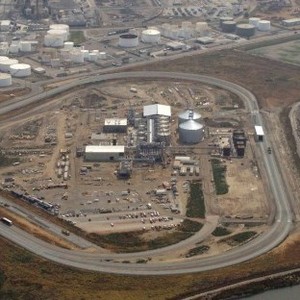Ener-Core delivers 2 MW power oxidizers to Pacific Ethanol plant

Pacific Ethanol Inc.
October 31, 2016
BY Ener-Core Inc.
Ener-Core Inc., a developer of innovative gas conversion technologies for global commercial and industrial facilities, has delivered two of its 2 MW sized power oxidizers to the Stockton biorefinery site owned by Pacific Ethanol. The shipment is a momentous occasion for Ener-Core, having deployed a commercial scale-up of the power capacity of the power oxidizer technology from 250kW to 2 MW over the last 18 months.
The power oxidizers, after delivery and installation with the Dresser-Rand KG2 turbine, are expected to provide up to 3.5 MW of electricity and over 26,000 pounds of steam per hour from the two power station units. The power stations will provide Pacific Ethanol, a leading producer and marketer of low-carbon renewable fuels, with a first-of-its-kind solution that can reduce air pollution by converting by-product low-quality waste gases generated by the Stockton plant's ethanol production into useful electricity and steam. The power stations are intended to significantly reduce the quantity of energy currently purchased by Pacific Ethanol's Stockton plant and are expected to reduce its energy costs by an estimated $3 to $4 million per year, representing a significant reduction in operating expenses for the plant.
The Ener-Core power oxidizer is designed to provide an alternative to a traditional combustion chamber within gas turbines for purposes of power generation. The power oxidizer, when coupled with an integrated gas turbine, allows a wide range of industries to utilize previously unusable low-quality gases and certain volatile organic compounds as a low-cost fuel source to generate on-site heat, power and steam. Ener-Core's delivery is the first step in the commissioning process and Ener-Core's engineering team will continue to work with the engineering teams from Dresser-Rand toward the installation of these systems at Pacific Ethanol's Stockton biorefinery in next few months.
Alain Castro, CEO of Ener-Core, commented, "The enthusiasm within our team runs quite high at the moment, as this is an important milestone for all of us, especially the engineers and staff in our Irvine, California, headquarters that have worked so hard on the scale-up of this technology over the last two years. The road to achieving utility-grade scale of our power oxidizer represents a significant engineering accomplishment with global repercussions in a growing market segment. We, as a management team, are humbled by everyone's commitment to this common goal. We look forward to the installation of these systems at Pacific Ethanol's industrial plant later this year and to building upon this success and expanding our technology and product portfolio in the near future."
Advertisement
Advertisement
Advertisement
Advertisement
Related Stories
Neste and DHL Express have strengthened their collaboration with the supply of 7,400 tons (9.5 million liters) of neat, i.e. unblended, Neste MY Sustainable Aviation Fuel to DHL Express at Singapore Changi Airport starting July 2025.
CoBank’s latest quarterly research report, released July 10, highlights current uncertainty around the implementation of three biofuel policies, RFS RVOs, small refinery exemptions (SREs) and the 45Z clean fuels production tax credit.
The U.S. Energy Information Administration maintained its forecast for 2025 and 2026 biodiesel, renewable diesel and sustainable aviation fuel (SAF) production in its latest Short-Term Energy Outlook, released July 8.
XCF Global Inc. on July 10 shared its strategic plan to invest close to $1 billion in developing a network of SAF production facilities, expanding its U.S. footprint, and advancing its international growth strategy.
U.S. fuel ethanol capacity fell slightly in April, while biodiesel and renewable diesel capacity held steady, according to data released by the U.S. EIA on June 30. Feedstock consumption was down when compared to the previous month.
Upcoming Events










